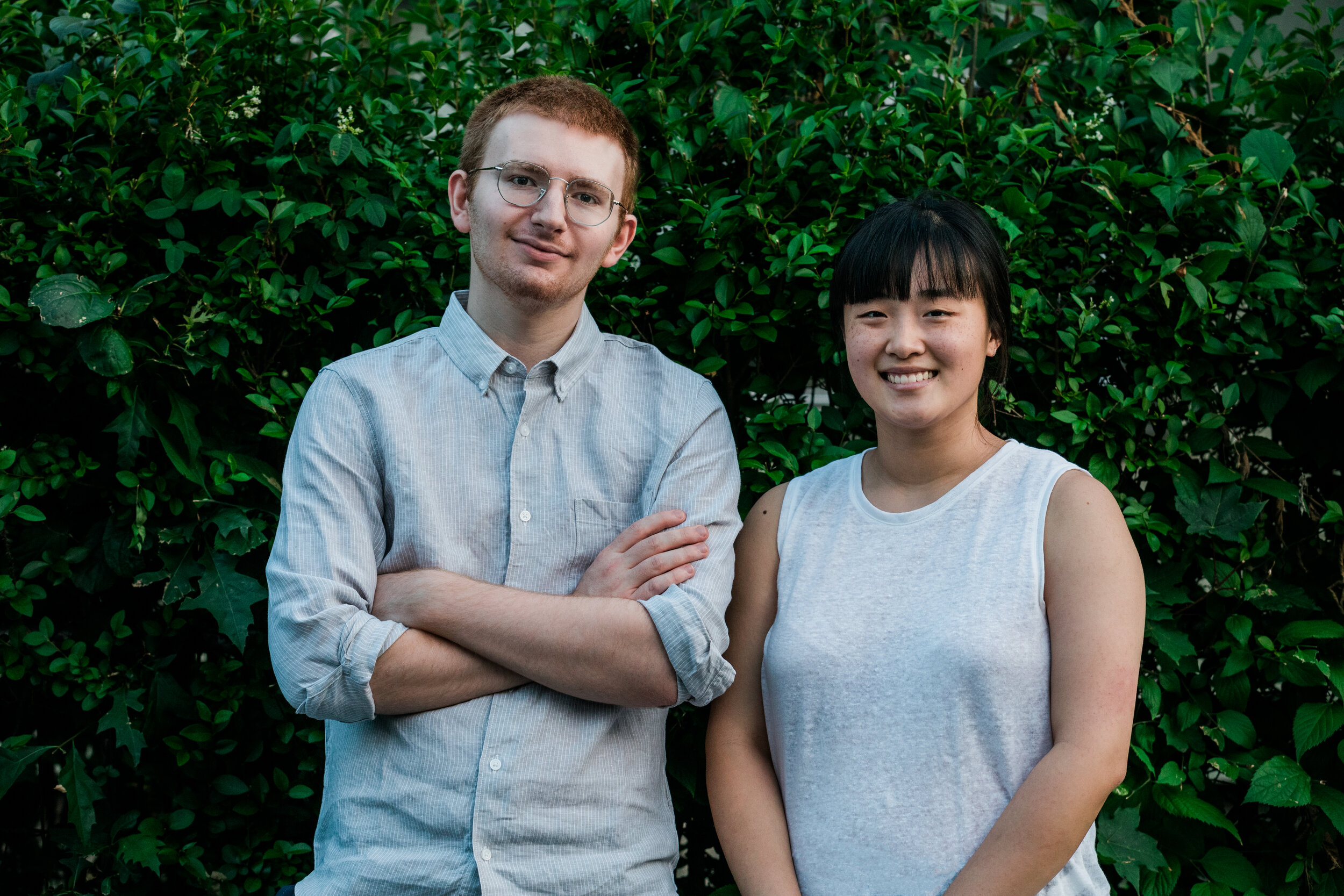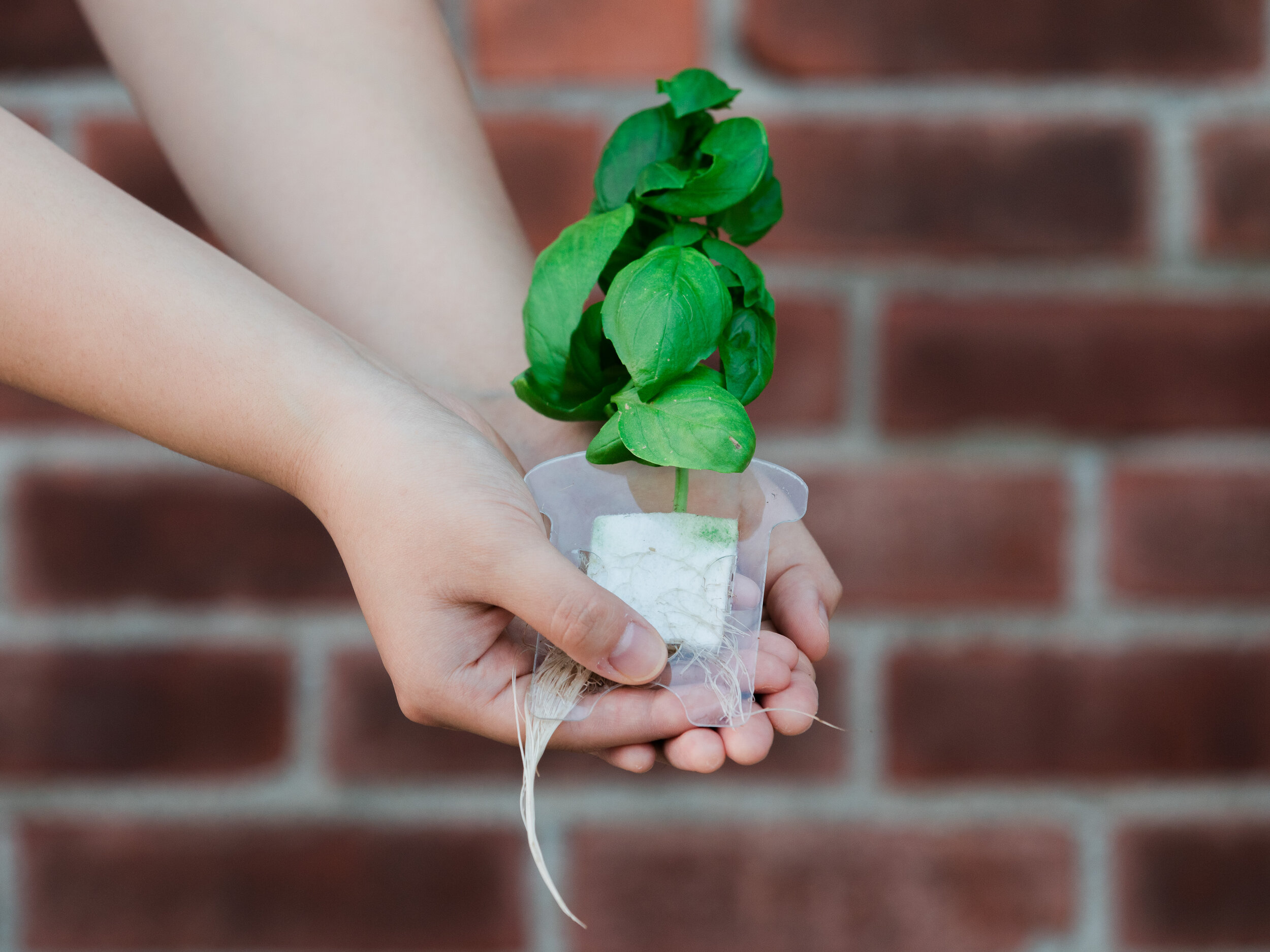2020 PVD Design Catalyst: Julie Joo and Westen Johnson of Soilless
July 31, 2020 /// Featuring: Julie Joo and Westen Johnson of Soilless
JULIE JOO and WESTEN JOHNSON of SOILLESS
1. Tell us about your company!
We are Soilless. We are creating an indoor garden that empowers people to grow fresh, healthy greens right in their own homes.
Westen Johnson (left) and Julie Joo (right). Photo by Rue Sakayama Photography.
2. How did you start the business? What’s the story behind Soilless?
We started Soilless during our senior year of college. Westen fell in love with living systems, first inspired by his aquaponics class. Both of us saw so much potential in our idea and product so we made it official last October.
Food is very important to both of us, and we felt compelled to create a way for healthy food to be accessible to everyone, regardless of space or location. We also wanted to work on making our system more affordable than others on the market. Our process started from simple sketches to numerous physical prototypes made in-studio at RISD to now—a much more refined, beta-test-ready design. The other day, we found a few of the initial sketch ideas from a few years back and are proud of how far we’ve come. We want our brand to be playful, inviting, and lively.
3. Why did you apply to the Catalyst program?
We felt that this program was very design-focused and saw a huge opportunity to get plugged into a community outside of RISD, as well as the funding to help us move forward with our start-up. Many of the local designers we look up to and our first mentor had previously gone through the program, so we’ve been hoping to be a part of it for a long time!
4. How has the Catalyst program impacted your business?
The Catalyst program has impacted our business in numerous ways. When we applied for the Catalyst program, we were recent graduates with very little funding and were struggling to create our prototypes without the proper equipment. With the funding, we were able to purchase machines and tools to help us work faster and build everything in-house. This allowed us to do almost everything ourselves, which has helped us work much more efficiently and quickly. In this current time which can be so difficult to work closely with others, we’ve been able to push forward with the funding and guidance provided by the program.
We have learned so many valuable tips and lessons from the workshops and clinics. We also learned so much from other cohort members and enjoyed going through this process together with an awesome community. With the pandemic, we had to edit our plan throughout the program a few times, but the guidance from our mentor and cohort members helped us stay in the right direction. We have more confidence in our business because the Catalyst program community had faith in us! We are incredibly grateful that we got the opportunity to be a part of this program.
Photo by Rue Sakayama Photography.
6. What business skills have you learned and refined through the program?
We still have a lot to learn, especially because we are so new to running a business, but we learned a lot of useful tips on areas we were not very familiar with, such as business development, legal, marketing, and budgeting. We were in an accelerator before the Catalyst program and while we learned a lot, the accelerator didn’t focus too much on design companies. The Catalyst program helped us put all of the information into a context more relevant to our field, which was very insightful. We hope to refine our marketing and business development skills moving forward and the Catalyst program has given us the resources and connections to do so.
7. What is the most important aspect of being a business owner?
To us, being good business owners means staying on top of everything and always being one step ahead of where we need to be. It’s hard to find motivation 24/7, so it is great to work as a team because you have someone to keep you accountable. Also, clear communication and honesty with each other and everyone is the two “must”s.
8. What advice would you give to your younger self?
Julie: I would tell younger Julie to not worry so much and be patient. Also to get out of her comfort zone more and make as many connections as possible.
Westen: I would tell myself to not be so hard on myself and that every step, whether it seems like it was forward or backward, is a step in the right direction!
9. What do you still dream to achieve?
Julie: My dream is for Soilless to be in numerous homes in the next 2 years. About the next 5 years… Hopefully even more in people’s homes! All over the world? That would be amazing.
Westen: I can’t wait to get more people growing their own food, and hope we can make even more products that help people live happier and healthier lives.
Photo by Rue Sakayama Photography.
10. Why do you have your business in Providence?
We didn’t have to make a huge transition, especially because we went to school here. We were also able to save some money on living expenses as well. There are so many wonderful opportunities and resources here and we are also close to some of our mentors.
11. How has the current global health pandemic and the social, political, and cultural unrest impacted your business? What is a lesson you’ve learned so far while adapting and changing?
We learned that the world is and always will be changing and transforming and that nothing is certain. So we need to think quickly and try to stay positive during uncertainty and instability.
The social, political, and cultural unrest has brought to light many important questions for us as individuals and as people. We want to make sure that our business stands on a good foundation with strong values and inclusivity. We also hope that our product can bring positive change to the world.
12. In your opinion, what does the future of design look like?
We hope that the future of design focuses on making the world accessible to everyone. We also hope that the future of design brings less waste and more sustainability to help our planet.
13. What is it about this profession that you find most rewarding?
Julie: I am so proud to be an artist and designer because I can dream and design the world I want to live in. And that world is a place where everyone has access to resources and life necessities to thrive and achieve their own dreams.
Westen: While what we do is challenging and it’s inevitable that sometimes you’ll feel like giving up, nothing is more rewarding than taking a step back and seeing everything you’ve worked so hard on coming to life.
Westen Johnson (left) and Julie Joo (right). Photo by Rue Sakayama Photography.





